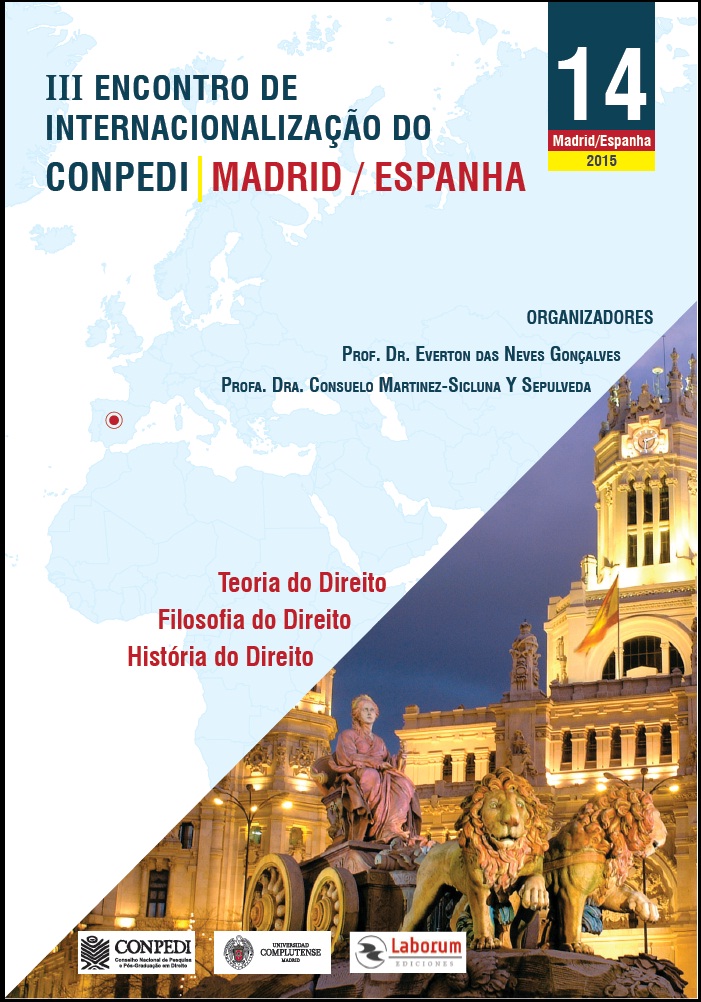What's So Democratic in " democratic constitutionalism " ?
Main Article Content
Abstract
The main idea of this paper is to raise questions on the democratic character of “con- temporary constitutionalism”. In this sense, we present the ideas of four renowned scholars and the core of their theses, whose influence – especially in the “Latin world” – is undenia- ble. They are Manuel Atienza, Luigi Ferrajoli, Luis Prieto Sanchís and Gustavo Zagrebel- sky. Among the many differences that characterize them, their accounts have at least one thing in common: enthusiasm for the constitutional project. To that extent, they stress the normativity of the Constitution and the “civilizing feature” of constitutional values. We address several objections to this understanding, taking into consideration the fundamen- tal right to participate on political affairs, including issues related to substantive rights, which require political and moral developments. To do so, we must take seriously the fact of disagreement and the fact of pluralism as elements of the process of protection and realization of fundamental rights. These rights are also subject to a decision-making process.
Downloads
Article Details
Autores que publicam nesta revista concordam com os seguintes termos:
O(s) autor(es) autoriza(m) a publicação do texto na da revista;
O(s) autor(es) garantem que a contribuição é original e inédita e que não está em processo de avaliação em outra(s) revista(s);
A revista não se responsabiliza pelas opiniões, idéias e conceitos emitidos nos textos, por serem de inteira responsabilidade de seu(s) autor(es);
É reservado aos editores o direito de proceder a ajustes textuais e de adequação às normas da publicação.
Autores mantém os direitos autorais e concedem à revista o direito de primeira publicação, com o trabalho simultaneamente licenciado sob a Licença Creative Commons Attribution que permite o compartilhamento do trabalho com reconhecimento da autoria e publicação inicial nesta revista.
Autores têm autorização para assumir contratos adicionais separadamente, para distribuição não-exclusiva da versão do trabalho publicada nesta revista (ex.: publicar em repositório institucional ou como capítulo de livro), com reconhecimento de autoria e publicação inicial nesta revista.
Autores têm permissão e são estimulados a publicar e distribuir seu trabalho online (ex.: em repositórios institucionais ou na sua página pessoal) a qualquer ponto antes ou durante o processo editorial, já que isso pode gerar alterações produtivas, bem como aumentar o impacto e a citação do trabalho publicado (Veja O Efeito do Acesso Livre) emhttp://opcit.eprints.org/oacitation-biblio.html
References
______. “Una filosofía del derecho para el mundo latino. Otra vuelta de tuerca”. Doxa, Cuadernos de Filosofía del derecho, 37 (2014), pp. 299-318.
______. Podemos hacer más: Otra forma de pensar el Derecho. Madrid: Pasos perdidos, 2013.
ATIENZA, Manuel e RUIZ MANERO, Juan. “Dejemos atrás el positivismo jurídico”. Isonomía, n. 27 (outubro de 2007).
ATRIA, Fernando. “El Derecho y la contingencia de lo político”, Doxa, n. 10, 1991 (pp. 319-345)
BARBERIS, Mauro. “Ferrajoli, o el neoconstitucionalismo no tomado en serio”. Doxa, Cuadernos de filosofía del derecho, 34, (2011), pp. 89-94.
BARROSO, Luis Roberto. Curso de Direito Constitucional Contemporâneo: os conceitos fundamentais e a construção do novo modelo. São Paulo: Saraiva, 2009.
______. O novo direito constitucional brasileiro: contribuições para a construção teórica e prática da jurisdição constitucional no Brasil. 3. reimpressão. Belo Horizonte: Fórum, 2014.
BAYÓN, Juan Carlos. “Democracia y derechos: problemas de fundamentación del constitucionalismo”. In: CARBONELL, Miguel y JARAMILLO, Leonardo García (coord.) El canon neoconstitucional. Madrid: Trotta, 2010.
BOBBIO, Norberto. A Era dos Direitos. Trad.: Nelson Coutinho. Rio de Janeiro: Elsevier, 2004.
CHIASSONI, Pierluigi. “Un baluarte de la modernidad”. Notas defensivas sobre el constitucionalismo garantista. Doxa, Cuadernos de filosofía del derecho, 34, (2011), pp. 101-120.
DE LORA, Pablo. “Luigi Ferrajoli y el constitucionalismo fortíssimo”. In: CARBONELL, Miguel; SALAZAR, Pedro (Eds.). Garantismo: estudios sobre el pensamiento jurídico de Luigi Ferrajoli. 2 ed. Madrid: Trotta, 2009.
GARCÍA FIGUEROA, Alfonso. “Las tensiones de una teoría cuando se declara positivista, quiere ser crítica, pero parece neoconstitucionalista”. In: CARBONELL, Miguel; SALAZAR, Pedro (Eds.). Garantismo: estudios sobre el pensamiento jurídico de Luigi Ferrajoli. 2 ed. Madrid: Trotta, 2009.
GUASTINI, Riccardo. La “constitucionalización” del ordenamiento jurídico: el caso italiano. In: CARBONELL, Miguel (Ed.). Neoconstitucionalismo(s). Madrid: Trotta, 2003 (pp. 49/74), pp. 51/58.
HABERMAS, Jürgen. Direito e Democracia: entre facticidade e validade. Volumes I e II. 2 ed. Tradução: Flávio Beno Siebeneichler. Rio de Janeiro: Tempo Brasileiro: 2003.
KELSEN, Hans. “La garantía jurisdiccional de la Constitución (la justicia constitucional)”. Trad. J. Ruiz Manero. In: Escritos sobre la democracia y el socialismo. Madrid: Debate, 1988
LUHMANN, Niklas. El derecho de la sociedad. Trad. Javier Torres Nafarrante. Ciudad de México: Herder, 2005.
FERRAJOLI, Luigi. Democracia y garantismo (Edición de Miguel Carbonnel). Madrid: Trotta, 2008.
______. “Constitucionalismo principialista y constitucionalismo garantista”. Doxa, Cuadernos de filosofía del derecho, 34, (2011), pp. 15-54.
______. Principia Iuris: teoría del derecho y de la democracia, v. 2 (Teoría de la democracia). Trad. Perfecto Andrés Íbañez, Carlos Bayón, Marina Gascón, Luis Prieto Sanchís y Alfonso Ruiz Miguel. Madrid: Trotta, 2011.
PRIETO SANCHÍS, Luis. Justicia Constitucional y Derechos Fundamentales. Madrid: Trotta, 2003.
______. El constitucionalismo de los derechos: ensayos de filosofía jurídica. Madrid: Trotta, 2013.
WALDRON, Jeremy. Law and Disagreement. New York: Oxford University Press, 1999.
______. “The Core of the Case against Judicial Review”. The Yale Law Journal, 115: 1346, 2006.
WALUCHOW, W.J. “Constitutional Morality and Bill of Rights”. In: HUSCROFT, Grant (Ed). Expouding the Constitution: essays in constitutional theory. New York: Cambridge University Press, 2008.
ZAGREBELSKY, Gustavo. El derecho dúctil: ley, derecho y justicia. 10 ed. Madrid: Trotta, 2011.





